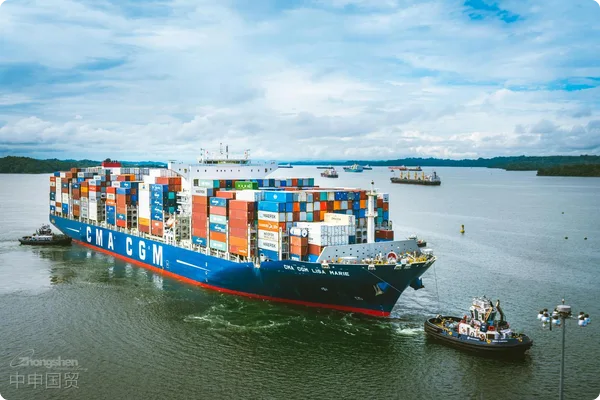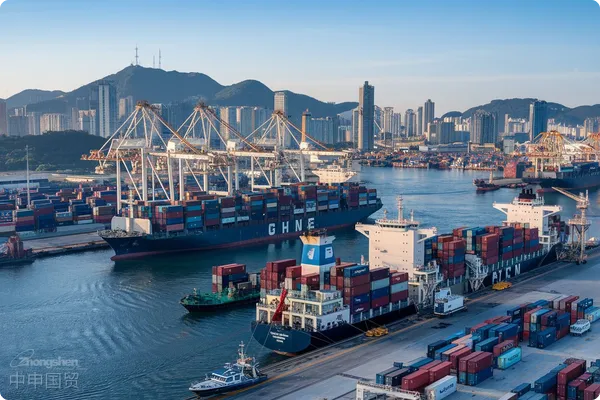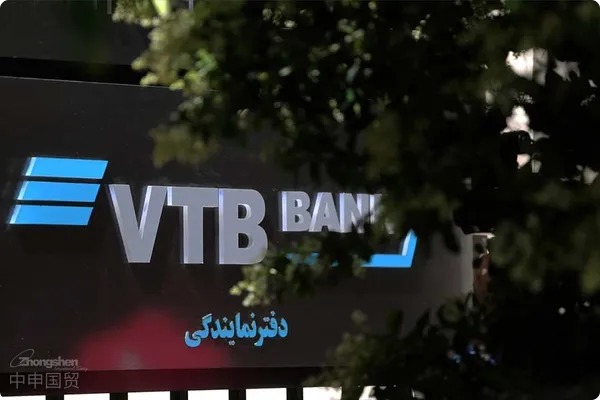- Shanghai Zhongshen International Trade Co., Ltd. - Two decades of trade agency expertise.
- Service Hotline: 139 1787 2118
On December 22, 2023, the U.S. government took further action to strengthen sanctions against Russia. The new executive order (Executive Order 14114) signed by the U.S. President expands the U.S. authority to sanction foreign financial institutions, particularly those involved in significant transactions with Russias military-industrial base. This measure aims to further restrict Russias access to resources supporting its military activities through the international financial system.
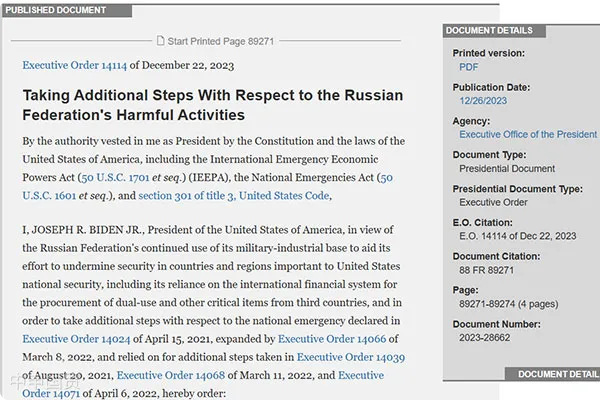
Executive Order 14114 expands on the earlier Executive Order 14024, authorizing the U.S. Treasurys Office of Foreign Assets Control (OFAC) to impose sanctions on financial institutions conducting or facilitating significant transactions in key sectors of the Russian economy. These sectors include technology, defense and related materials, construction, aerospace, and manufacturing. Additionally, any financial institution directly or indirectly assisting in the sale or transfer of critical items designated by the U.S. Treasury Secretary in coordination with the Secretary of State and the Secretary of Commerce will also face sanctions.
The definition of foreign financial institution in this order is broad, covering various types of institutions, from banks and credit card system operators to securities brokers, futures and options brokers, and dealers in precious metals, gemstones, or jewelry. Holding companies, affiliates, and subsidiaries are also included.
The U.S. Treasury also released a list of critical items, added several general licenses, and provided new compliance advisories and FAQs to guide relevant entities. These measures aim to ensure that financial institutions and other stakeholders correctly understand and comply with the new regulations.
According to the White House statement, sanctioned financial institutions will face comprehensive blocking sanctions, potentially losing their correspondent banking accounts in the U.S. or facing strict conditional sanctions. U.S. officials emphasized that this is the first time the U.S. has introduced a tool allowing it to impose secondary sanctions on banks indirectly aiding Russias military activities.
This move marks a new phase in U.S. efforts to exert economic pressure on Russia. By expanding the scope and depth of sanctions, the U.S. aims to cut off Russias access to resources supporting its military activities through the international financial system. These actions not only affect Russia but also pose significant challenges to global financial institutions, requiring them to scrutinize transactions and business activities related to Russia more carefully.
The global impact and long-term consequences of these sanctions will become apparent over time. Financial institutions and the international community need to closely monitor the United States next steps and the effects of these measures on the international economic and financial systems.
The key item list released by the U.S. Department of the Treasury on December 22 is as follows:
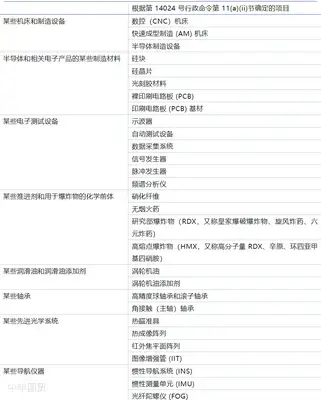
Original announcement:Federal Register :: Taking Additional Steps With Respect to the Russian Federations Harmful Activities
Related Recommendations
? 2025. All Rights Reserved. Shanghai ICP No. 2023007705-2  PSB Record: Shanghai No.31011502009912
PSB Record: Shanghai No.31011502009912

